- From Faith Current: “The Sacred Ordinary: St. Peter’s Church Hall” - May 1, 2023
- A brief (?) hiatus - April 22, 2023
- Something Happened - March 6, 2023

In the midst of commenting on Michael B.’s excellent post, I was reminded of something that I’ve said to friends innumerable times but might never have ever written here for you all. I have a lot of Beatle Thoughts like that, sorry. The only solution is for everyone to live with me, and that won’t work because my cat Max gets hemorrhoids around new people.
All John Lennon needed to be happy was to give it all away.
This isn’t the hippie pipe-dream it might seem. Let me explain: At his death, the Chief Beatle was estimated to have an estate of $150 million. Say he’d given away 99% to various charities; he’d be left with $1.5 million, and you could’ve lived very well on that in 1980, even in New York City. (Treasuries were earning 11%.) He wouldn’t have been able to live in The Dakota, sure, but that place is the real-estate equivalent of an expensive watch; it looks like hell to heat, and there are supposedly ghosts. I’m guessing, but a nice (preferably ghost-free, or even minorly haunted) condo on Bank Street in the Village would’ve run Lennon $150,000. Certainly he could’ve bought a nice place in a safe neighborhood and still had a cool million in the bank for a rainy day.
Think about it: In six weeks, he would’ve known—for sure—whether Yoko only loved him for his money. And any friends that stayed, from Paul to Harry to Elton to the guy at the drugstore, were the real deal.
A “broke” John Lennon would’ve no longer been a target for scammers, pushers and users. He would’ve probably eaten like a normal person again, went to normal doctors, and stopped obsessing over nonsense like the Spear of Destiny. There’d be no security necessary; nobody would kidnap Sean. And he would’ve distanced himself for good from all his supposed competitors in the music business—like Dylan, for example, or Mick or even Paul. In 1980, Lennon seems determined to show that those guys were simply entertainers, while he was something more; this would’ve been probably the only way to show that. With a stroke of the pen, Lennon would have given his political views an unassailable moral power.
If Lennon had liquidated, he still would’ve been able to do the things that he apparently liked to do (read, cook, go to cafes, make new songs), but without nearly so much hassle. He still could’ve traveled, he still could’ve stayed in nice hotels; he just wouldn’t be indulging in the corrosive fantasy of being better than the rest of us. And because he’d once again be living like a normal person, with normal person thoughts and problems, the well of creativity that had been draining since 1963 would’ve refilled; a “broke” John Lennon would’ve been able to write songs that normal people could relate to, because he’d have turned himself back into normal people. (Yes, I know he found “normal” boring, but that was his illness talking. You know what’s genuinely boring? Entirely white rooms. Closets full of shoes and briefcases. Someone talking about macrobiotics.).
If he’d simply given his money away, John Lennon would’ve never paid for anything ever again. He’d have eaten for free, stayed in rich people’s apartments for free, and gotten free medical care when he needed it, thanks to his millions and millions of fans, made even more devoted by his generosity and ability to walk the walk. Ironically, by leaving first-class for coach, he would’ve become something very very special, something like what the Dalai Lama is today. His actions would’ve sent a powerful message to literally every person in the West: you are not your bank account.
And it’s not like the things John used to make money would disappear. He still had the rights to his work; and most importantly, he could still write and perform. If he had given away his money, then made an album and gone on tour, I suspect that would’ve been…quite the profitable venture.
In fact, I think the only way John would’ve been able to get to where he seemed to want to go—to become bigger than The Beatles, to be known as a songwriter/entertainer, but much more than that—would’ve been some game-upending gesture like this. He wanted to reap the benefits from capitalism, patriarchy, and Western religion even as he transcended them, and that simply cannot work. Lennon wasn’t a hypocrite for both craving the security of wealth and being smart enough to see that the security is illusory; he was merely a product of our society. But there is no shortcut to growth, and whether he admitted it publicly or not, he knew that his money was shackling his spirit to fear and nonsense, and it the weight got heavier the richer he became.
Sadly, a “broke” Lennon never would’ve happened; he was unable to realize his true sources of wealth far outweighed all the ink-spattered linen in his bank account. To him, even in 1980, success really was measured in money, and until that idea died, he couldn’t give it away without destroying all he’d accomplished. For all his gestures in other directions, Lennon definitely bought into the patriarchal idea of hierarchies based on wealth. Sadly, he seemed to be getting more attached to wealth and privilege as he aged; not surprising, as infirmity makes cowards of most. In the midst of all his pontification in the 1980 interviews, “I’ve got mine” is a constant, sour note. He seemed to resent, rather bitterly, anyone who suggested that maybe he didn’t need so much, or that he might, for example, do a free concert.
But giving it all away would’ve been better for him. His generosity would’ve been the most self-benefitting thing he could’ve done. Great wealth simply wasn’t worthy of the guy; getting rich was the least of what he did. There are bond traders that are much richer than John Lennon ever was.
As billionaires and billionaire-ism occupies much of our political talk today, I am struck once again: if John Lennon had really wanted freedom, respect, and abundance, all he had to do was give his fortune away.



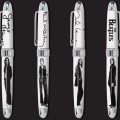


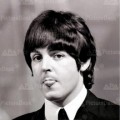

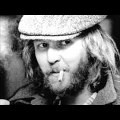
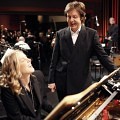
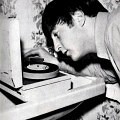
Great post. John Lennon with “only” 1.5m is a fascinating thought experiment. Ironically, I think we have some evidence that this would have worked out well, because if memory serves, during the Lost Weekend, his money was tied up between Klein litigation and Yoko’s demands, so he had to live somewhat more frugally. And he was more than fine: after he and May moved back to New York, he actually lived the most stable life bed probably known since Uncle George was alive.
Between Mimi and Yoko, John didn’t have good role models for the idea that money does not equal worth, or that being upper class is not an achievement. When he was around these ideas, they got to him quickly and were a bad match with the part of Lennon’s personality that used “genius” the way someone else might say “CEO” or “billionaire” or “Duke.”
I think you’re absolutely right that in 1980, John was particularly concerned about proving he was more than another songwriter/entertainer. I see this as being a combination of insecurity about making a comeback, insecurity about the well being dry, ongoing jealousy of/competition with Paul, and insecurity stemming from Yoko’s belief that being the founder of the Beatles was significantly less valuable than being an Artist. Add John’s narcissism and megalomania (you don’t create the Beatles without some of each) and you have Lennon circa 1980. As you say, there were many things he could have done to be bigger than the Beatles if that was his goal. I increasingly think that those around Lennon knew that was his goal and gave him bad advice in those months.
Michael, are you saying John could have been broke AND woke?
Haha! Good one Justin!
LOL — I’m saying the only way that guy could’ve ever been truly woke was if he were truly broke.
I find that photo of the floor-to-ceiling file cabinets rather crushing. Whether or not that room is actually windowless, it sure gives off a bunker vibe to me. I can’t imagine wanting to spend five minutes there, let alone the many hours a day there that Ono evidently did.
.
And to the point that Michael B. raised in his recent post, what exactly was Yoko Ono doing during this period that required her to be on the phone so many hours a day? The business of making money seems to have taken up a lot of space, both physical and mental/emotional, in this household in the 1970s.
.
Reading about Lennon in the 1970s gives me the sense that his fatigue comes primarily from the kind of cognitive dissonance you get at in this post, Michael. Money isn’t making him happy. At some level he knows his creativity is stifled and he’s cut off from a lot of people who care about him. But getting to the point where he could act on that — that would have taken either good therapy or more time than he ended up having. Just at the simplest level, changing anything major would have meant working out details with Ono. And she was clearly dealing with her own past trauma, which importantly included poverty and deprivation. With more time, I think something would have had to give, and that something could well have involved money and living arrangements.
I agree Nancy. And what could possibly be in all those file cabinets? If only we could find out, many questions on this blog would surely be answered.
I mean, I’m keeping in mind that it was the analog age and people needed to keep more paper records, but that wall of file cabinets seems truly bonkers. It feels like a statement that What Goes On In Here Is Really Important. That photo makes the whole Yoko downstairs doing business on the phone vs. John in his bedroom upstairs watching TV newly vivid to me.
My guess is this was the beginning of the Estate’s buying the rights to every photo that they could. Although it simply could be contracts. By 1979 or whenever, the amount of paper generated would’ve been intense; back when I had 25 editions going of my books, just that was a full filing cabinet.
Clearly I’m thinking about this photo a lot! Whatever’s in those cabinets, it was a choice to keep it all in the Dakota — and that is interesting to me. Obviously they could have afforded to keep all that paperwork elsewhere (or, more likely, to pay attorneys/CPAs etc. to keep it elsewhere). Why live with it all, day in and day out? Why did Yoko Ono evidently decide to spend so much time on this rather than on doing art?
.
I find the Lennon/Ono Dakota years perplexing, and this image brought that into sharp focus for me. The decision to dive so deeply into “business” and to bring it all home seems odd, and I think related to your point about the burden of their having so much money to manage.
Control. Controlcontrolcontrol. Managing that amount of money (or any amount of money) doesn’t have to be a burden if you pick good, trustworthy people who act as a check on each other. Your accountant checking your business manager, your lawyers checking both. $150 million can buy a lot of good help. Unless you were born wealthy and then lost it all, in which case you must do it all yourself and trust no one. THAT is very stressful. (OTOH, it’s worked in Yoko’s case, unlike in poor George’s.)
.
The Lennons had (and surely Yoko has) a legion of CPAs and lawyers on retainer. I don’t think it’s crazy to have copies of all your contracts in your home office, but my guess is that these filing cabinets held a bunch of other stuff: contracts and other business papers, sure, but also personal correspondence, tapes, maybe even memorabilia — anything that could be kept.
I’ve realized that I’ve responded to this photo as I have because if I had millions of dollars I would be ecstatic to outsource a whole bunch of this kind of work to trustworthy people. When my husband and I decided it made sense to have a CPA do our taxes I was thrilled.
.
The Lennon/Ono Dakota years do seem to be about control — and about suspicion as well. Points to Yoko for managing and overseeing all those interests and all that money as well as she has. I sincerely hope she’s enjoyed doing it. Being in a room with that number of filing cabinets and having to deal with all that monetary information would be, for me, a straight-up nightmare. Perhaps that is part of the reason I don’t have millions to manage!
.
And you’re probably right about all kinds of other things being in those cabinets. As a person who cleaned out my parent’s overstuffed house a few years back, all I can say is ACK. Lennon and Ono had the space to keep a lot.
.
Reminds me of what Elton John said about the Lennon/Ono penchant for acquisition:
.
“John and Yoko were as bad as me when it came to shopping. The various apartments they owned in the Dakota [in New York City] were so full of priceless artworks, antiques and clothes that I once sent them a card, rewriting the lyrics to ‘Imagine’: ‘Imagine six apartments, it isn’t hard to do, one is full of fur coats, another’s full of shoes.’”
Link to source
.
Good question. It’s so obsessive. Almost an addiction.
.
Here’s some of an interview with Ronnie Hawkins (courtesy of Karen Hooper)
.
Q: What were your first impressions when you met John?
A: Well, I didn’t know too much. I did know that Yoko was super intelligent. She was supposedly be able to speak five or six or seven languages. I know she could call anyone. She put 16 lines in my house and she could pick up and phone the ambassador to Japan, Princess Elizabeth, Peter Sellers. All those people, she just picked up and talked to everyday.
Q: Literally 16 telephone lines?
A: Yeah. they negotiated on a Saturday night, and daylight Sunday morning 16 lines came across the fields into my house. Usually, you have to wait six months for one phone, but this is what happens when you have authority… And to top it off, the phone bill was never paid.
https://beatlequotes.wordpress.com/2020/02/16/that-time-in-mississauga/
That’s fascinating, Sam. It’s like Yoko Ono trying to build the internet before it existed!
Mr. Gerber made some good points last year about John (and Yoko’s) insecurities about finances:
.
He was growing older, and richer, and for all his admirable political stances, remained staunchly (almost defiantly) capitalist until the day he died. In fact, he was quite peevish in those late interviews when it was suggested that there was a dissonance between his politics and his personal conduct. Unlike many rock stars, John didn’t even want to perform for free, no matter the cause.
.
From what we know of his and Yoko’s financial activities in the Dakota period, they were acting aggressively to protect their fortune, buying things like real estate and dairy cows as hedges against inflation. Lennon was very interested in staying rich, and Yoko certainly had a competitive thing going with Paul, money-wise, which has persisted over the years.
.
I wonder if giving it all away (or most of it) would have precipitated a massive anxiety attack. Certainly in Yoko, with her traumatic history of childhood deprivation. And probably in Lennon, who saw money as a protective cloak. If Lennon had suggested such a thing (“Yoko! Imagine no possessions! No, I’m serious, hear me out!”) Yoko possibly would have taken steps to have him declared mentally incompetent.
.
.
I believe Paul, Harry, Elton and the drugstore guy would have stuck around. Yoko? I honestly can’t say.
.
Here’s the thing with Lennon giving it all away: he’d have to make a habit of it. Because he was like one of their dairy cows. He was a milk producer. He might have had fears about his creativity running dry, but he could always bang out enough tunes for an album or two, and David Geffen or someone would have been happy to promote it. Even if the record-buying public eventually decided his solo work wasn’t worth paying for anymore, there was still the Beatles back catalog to repackage for new generations of fans who might not be interested in his Jack Douglas offerings.
I don’t know, of course. All I know is what I’ve read in books, magazines, whatever. His last years he was holed up in the bedroom of the Dakota. Reading, watching TV, the wheels and smoking weed . In those years he was occasionally writing music or playing oldies on guitar, piano. From the outside, those of us, old Lennon fans, he appeared more or less stagnant. Reading about those years after he was gone, II recall not being surprised to learn how little he was actually doing.
I do not know how others feel about him, but to me, I just think, as an artist, he seemed to be dull and boring himself silly. As an artist, I must be doing art things or I become unhappy. Beatle John had nagging Paul bugging him to get to work. Now that was gone. Yoko didn’t want Paul around. Surely a wee visit was okay but no more.
John hadn’t really spoken to him in years. So my guess is, despite the JohnYoko spin John wasn’t happy those years. After all, he wasn’t really Daddy cook 24/7. There were nannies, cooks.
As far as the real subject here, John throwing away his money? Nope. Don’t think so. Yoko was doing the money business. She would never have allowed it.
And yes, I feel John was too dependent on Yoko. After all, Yoko replaced him soon after he was gone.
Homebody John is a sad figure to me. Sure he was digging up old demos, recording them and releasing them for the public, but DF was not well received before John was murdered. I think those former employees told the truth for the most part about John.
I confess Beatle John, the working artist, was a more interesting person tome. More fun, better music. All this is just my opinion of course.
This is only the second thing I’ve read about this about John in his later years and no charitable giving. From all books and a person who claimed to have researched spirit foundation, compared to the other solo Beatles, john and yoko did far less if any charitable giving, though he did do 2 or three benefits concerts in the beginning. Someone noted that researched the spirit foundation and traced any monies and could never find on record where any money donated to, so that could have been set up as a tax break, I’m not sure. I have never researched John and yoko charitable givings but do know that never once read stories about them, as did about the other solo Beatles, giving to individual folks in financial need along or to charities and, if they did, what charities John and yoko gave to. The foundations or Liverpool music school have been researched and found to be charitable though Liverpool school nice got some government subsidy. George gave freely to Hare Krishnas.
I do know that when in mid seventies, Paul was then declared richest celeb because of father-in-laws wise advice to invest in song rights and that supposedly John directed yoko to build up their wealth. I always noticed a curious lack of information about this with John and yoko so I assumed they didn’t give. I agree that this would have given his life and his message much more meaning and probably would have inspired him artistically. Kudos for bringing up a hardly ever discussed subject.
Its a bit like when the rich man asked Jesus how I can get to heaven ,he was told sell all your belonging give it to the poor and follow me , the rich man could not do this and walked away despondent.
“What exactly was Yoko Ono doing during this period that required her to be on the phone so many hours a day?”
Make of this what you will: reading ‘The Last Party,’ by Anthony Haden-Guest, a book about New York nightlife in the late 70s/80s, I came across a rather curious tidbit. The author mentions a woman he refers to only as ‘The Elf Queen,’ a ‘supplier of controlled substances to the gentry.’ ‘The Elf Queen, a former flower child,’ he writes, ran ‘a narcotics distribution network to the upper classes from a Gothic building on Central Park West.’
@Matt, I’ve long assumed that’s what she was doing, and that the underworld and organized crime connections that that entails account for other things in that story that are not really accounted for. Likewise the Lennons’ dealings in art in the late Seventies, long a favorite vehicle for money laundering. Imagine, if you will, what sorts of people you might meet if you were involved in these things, and what sorts of favors they might be able to accomplish for you.
In his book, Fred Seaman tells a story of obtaining a shipment of black-market pills for Yoko in a rather cloak-and-dagger operation. Naïve early-fan me thought it was sensationalism; slightly more seasoned fan me thought they were for her. Now I vaguely remember the amount he obtained, in light of this thread, and wonder if they were only for her.
Her trip to Colombia (the Cocaine capital!) is also very suspect. Making blood pacts with a witch for fortune and magic powers isn’t exactly out of character with what we know of Yoko’s preoccupations, but it may also have been a convenient smoke screen to account for less legal activities being transacted at the same time. That whole axis of associates like John Green, Sam Green (Yoko’s sherpa during said trip and proprietor of Colombian real estate), Sam Havadtoy etc is very dubious, and the various attempts at investments, like high cost art, farms, cows, and real estate in retrospect smack of laundering avenues like @Michael Bleicher said above.
Then there’s a major extortion attempt that has never been adequately accounted for (in the same year as the Colombian trip, no less; and which, strangely, specified Dec 9, 11pm as the pay by cutoff.)
Circumstantially, but very ominously, you have Mark Chapman in 1980 dropping off cocaine to different addresses in a taxi in New York, a city where he doesn’t know anyone, that he’s only visited briefly once before.
@Matt, and the hefty advance Geffen paid on Double Fantasy royalties, which he didn’t stand to recoup until December 9, 1980, and the life insurance policy he took out on Lennon, which also turned out to be a surprisingly good investment.
@Matt – I don’t know what to make of the information about Chapman. I haven’t heard it before, but wow. It’s a good job that He Must Not Be Named or Spoken Of or people might start asking questions and putting two and two together.
The rest of it makes complete sense, and especially the link with Colombia. Of course Sam Green would have property there. Incidentally, does anyone know if Yoko’s fascination with black magic came to a timely end after John was killed? It’s a bit strange that she suddenly got rid of half her circle.
@Michael Bleicher – I have always thought that Geffen’s grief-stricken appearance at the hospital was one of the strangest things in the whole sorry sequence of events. I mean, put yourself in the shoes of someone who has just witnessed her husband get gunned down in cold blood. Who would you choose to accompany you to the hospital? A family member? A friend? Or a stranger you’ve known for a few months who just happened to finance your latest business venture?
I realise Yoko might not have had a family member or friend, but common sense would dictate that even the nanny would be a more believable choice than Geffen. How did he even get there so quickly?
Can Geffen legally do that without John’s consent? The life insurance policy, I mean. Are you saying he was responsible for John’s murder?
@Elizabeth- perhaps Geffen knew that Yoko had no relatives in town and thought he should go to the hospital to show his support? You’re reading too much into what was a chaotic situation.
Another thing that’s always bothered me is that Chapman apparently took a “round the world” trip “starting in a westerly direction” shortly before Lennon’s murder. How did he get the money for this grandiose adventure? After all, he was just a security guard with a modest income. Apparently by selling a Norman Rockwell painting. I don’t know that it’s ever really been thoroughly investigated HOW exactly he obtained that painting. Like I think he just said, “Oh a family member gifted it to me.” And then the cops were like “yep, that checks out.” (Because that totally seems like a normal thing that happens to people…) But of course the results of this investigation were sealed up after Chapman confessed in 1981 and have never been released, and may not even exist after 40+ years. If anyone else knows more about this than me I would be curious, it’s always struck me as a bit of a missing piece. And coupled with the money laundering discussion re: rare art and the other sketchy things JohnandYoko were involved in by then…it begs a lot of dark questions. Not even sure I really want to go there but I’m fully convinced there is more to the story than we will ever know.
I must amend my previous post slightly, as I was relying imperfectly on memory. Chapman did offer his taxi driver cocaine (according to the driver himself in a N.Y Post article), and proceeded to make a number of unexplained stops about Manhattan. Whether he was actually dispersing or collecting contraband beyond his cache is not known.
This is from Fenton Bresler’s book:
“He [Chapman] would seem to have been delivering or collecting something, which is strange for someone who allegedly knew no one in town. For he started on a half-hour journey that took him first of all back almost to his hostel, where he disappeared into a building on West 62nd Street for about five minutes, then across Central Park to the corner of East 65th Street and 2nd Avenue, where he disappeared for another few minutes, and then to the other side of town down in Greenwich Village where he got himself dropped off at the junction of Bleecker Street and 6th Avenue.”
Trying to respond to Michael Bleicher and Elizabeth’s comments re: Geffen, but the “reply” button isn’t showing. Yeah, Geffen’s reaction to the murder (and the other oddities that have been mentioned here such as the life insurance policy on Lennon) is another aspect of this that seems a bit “off” to me.
Here are a couple excerpts you might find interesting:
This is from Goldman, so you have to take it with the obligatory grain of salt:
“On Tuesday evening, less than twenty-four hours after Lennon was killed, Yoko slipped out of the Dakota to have supper with David Geffen, who brought along Calvin Klein and Steve Rubell, formerly manager of Studio 54, recently discharged from prison for income tax evasion. Seeking to avoid notice, they went, reportedly, to Harlem’s Little Italy, dining at the Blue Book on East 116th Street. Geffen was in an exultant mood that night, as his behavior later at the Dakota demonstrated, when he boasted openly of the enormous amount of money he was making for Yoko. He had cause for rejoicing because Lennon’s murder had transformed an album that dealers were already returning for credit into a sensational blockbuster that sold more than six million copies. And Geffen had insured John Lennon’s life for a large sum of money when he signed him up (Goldman p. 597).”
And then this from a very interesting article written by Vicki Sheff recalling the scene in the Dakota on December 10, 1980 (The Betrayal of John Lennon | Vicki Sheff):
“Downstairs in Studio One, the group continues to screen the incoming mail and calls. Besides De Palma and Mintz, other assistants have come to help–and to talk. The radio speakers blare with songs by Lennon, interrupted by news reports about further developments in the case. Geffen, whose photograph with Ono is on the front page of most newspapers today, is on the telephone repeatedly to his second in command at Geffen Records, talking about the sales of the Double Fantasy album. He talks almost exclusively about the effect of the shooting on his business and is heard to say that he hopes war in Poland can be averted, for a war would knock the Lennon tragedy off the newsweekly covers.”
I mean, I get that everyone processes grief differently, but it doesn’t seem like he was especially “wrecked.” Particularly when you consider this was literally days after Lennon was murdered. You’d think the business talk could wait a week or two. Obviously this doesn’t necessarily mean anything by itself, maybe Geffen is just a greedy bastard. But I think it does follow a pattern where there are a lot of things surrounding Lennon’s murder that can be objectively classified as “odd,” to say the least.
@Sam – Oh yeah, the round the world trip in the same direction John took at more or less the same time, financed by a loan from the psychiatric hospital where Chapman had been a patient and where he met his future wife, Gloria, a hospital volunteer and travel agent no less, who wrote his itinerary while dabbling in satanism on the side.
The Norman Rockwell painting was sold to finance his trip to New York. That and his Salvador Dali – because, you know, it’s really logical that John’s killer would be art collector. What are the odds?
@Elizabeth
“Does anyone know if Yoko’s fascination with black magic came to a timely end after John was killed?”
Yoko has done a good job of keeping her life private for the last 40 years. I imagine all the servants since 1981 must have signed stringent non-disclosure agreements, because nobody has said anything, and we have little to no information about that chunk of her life outside her public activities. Since much of John and Yoko’s relationship was predicated on convincing him that she had magic powers, the fascination may, as you say, have waned after his demise.
@Sam Another thing that’s always bothered me is that Chapman apparently took a “round the world” trip “starting in a westerly direction”
This bothers me too. Not only the question of how he funded such a jaunt, but the disturbing analog with Yoko’s penchant for sending all her close associates and immediate family on just such geomantic trips. The coincidence did not escape Seaman, who mentioned it in one of his old rec.music.beatles posts.
@Sam
This is from Fred Seaman. You might find it interesting.
“‘The bodyguard, an ex-fbi agent named Doug Macdougall, was originally hired in spring 79 as Sean’s bodyguard. After John & Yoko went public in sept.80 Macdougall urged Yoko to beef up security. He was particularly alarmed by an interview Yoko gave to the Daily News in which she indiscreetly talked about their recording schedule & even the route their limo took. On sept.25 Doug had a stormy meeting with Yoko in which he suggested that they have an armed guard ride with j&y in their limo, or that a guard meet their limo at the entrance to the rec.studio & dakota. Yoko rejected both suggestions. Frustrated by Yoko’s lackadaisical attitude re security Doug then went on a “leave of absence”. He was scheduled to meet with Yoko on dec.9 to review the security issue. but by then it was too late.’”
@Matt – I think the security guard thing is half a story. I don’t really buy that anyone would be so invested in their employer’s comings and goings that they would take a ‘leave of absence’ in protest of what they consider to be a bad decision. I think Seaman was obfuscating there, probably for Macdougall’s benefit.
More likely she published the schedule and sent Macdougall on holiday until December 9th.
Regarding her recent ‘staff problems’, there was the ‘extortion attempt’ by the driver/bodyguard a few years ago. He was threatening to go public until she managed to have him dealt with. I have no doubt that she makes it her business to find out the things about all her staff that they don’t want anyone else to know, just in case they can’t be threatened or bought off.
@ Elizabeth – That’s really interesting – I didn’t know that the round the world trip was financed by a loan from the psychiatric hospital. That seems…unusual. Do you remember where you read that? Not doubting you, just curious as I find this subject fascinating but it’s hard to separate out legit sources from overly “down the rabbit hole” conspiracy theorist blogs, etc. I think there’s a lot of pieces that don’t add up but I’m also not convinced by some of the more outlandish theories (e.g. MK ULTRA, black magic, Lennon faked his own death and still lives, etc.)
I also didn’t realize there was a Dali in the mix too – I sure wish I had family/friends who were so generous with their priceless works of art…
@Sam Without them in front of me right now, I can say a lot of information about Chapman is to be found in the books by Jack Jones (who spent exhaustive time interviewing Chapman about his life) and Fenton Bresler, who did a lot of research based on his belief that Chapman was a patsy. I’m pretty sure offhand that information about Chapman’s loans and selling of artworks is present in those books.
Yoko’s predilection for the occult is corroborated in the books by May Pang, Seaman, John Green, as well as by Goldman. It isn’t really a theory. Whether her interest in magic was black/white, malevolent or benign may be open to discussion. However, if we credit the Colombia incident, it seems fair to say Yoko was not averse to the black side of magic. Her willingness to undergo a ritualistic ceremony with a bruja culminating in animal sacrifice and blood pact tells you how far she was willing to go to satiate her own avarice. (Albeit, she thought she could cheat the devil by having John Green sign his name.) And whether you believe or I believe in this sort of thing is less important than the fact that Yoko believed in it and did it.
@Sam – Chapman was apparently admitted to Castle Memorial Hospital in 1977, but released two weeks later. He was then hired by the hospital as a maintenance worker, and got a loan from the hospital credit union to finance his round the world trip. Gloria Abe was a volunteer at the hospital and that’s where they met. She was a travel agent and she wrote his travel itinerary. Her father allegedly loaned him the money to buy the Norman Rockwell and Salvador Dali.
Most of this information came from books about Chapman, apart from the stuff about Gloria Abe’s interest in black magic/satanism, which I found in a interview that she had given to a church she now belongs to. One of the books, ‘Sinister Forces – A Warm Gun’, mentions that Chapman was possibly making drug deliveries in Manhattan, but doesn’t make any reference to Gloria Abe’s interest in black magic, and I wonder whether this was known before she gave the interview.
I haven’t really seen much about Chapman on anything I would consider to be a conspiracy site, not of the Paul Is Dead variety anyway. There is plenty of speculation on the internet that Chapman was hired by the CIA, but very little analysis of what the round the world trip, art collection and Japanese wife with an interest in black magic might mean. Part of the problem is that discussion of Chapman is forbidden, so anything anyone says about him is automatically filed under ‘conspiracy’. It defies belief, but here we are, 41 years after John’s murder, still reluctant to examine the facts because We Must Not Speak His Name. Very convenient, eh?
@Elizabeth The three ‘Sinister Forces’ books are a great read. I might have mentioned it here before, but it was also Levenda who noted from first hand experience that John and Yoko were often seen to frequent an occult bookstore in NY that was a known Process hangout.
Also, I think the Chapman as possible CIA asset idea is one of the few theories permitted by head-in-the-sand Beatle people precisely because it doesn’t ruffle much or impinge on their notions. It just makes Lennon a martyr to the causes the estate still likes to trumpet but which Lennon had abandoned years before his death anyway. And it’s compatible with The Ballad of John and Yoko. So it’s okay. It’s a theory that essentially confirms certain idealized notions that people have rather than challenging them. To compound things further, Yoko has survived long enough to live in a climate where criticizing her is now politically incorrect, and this severely hampers anybody attempting to call into question her actions, however objective or evenhanded.
@Matt, that shop was called “Magickal Childe” and has been mentioned on Hey Dullblog before.
@Matt – You have to wonder about the intelligence of some of these people. If they found Colonel Mustard in the library standing over Miss Scarlett with a wrench, I bet they’d still struggle to put it together. For God’s sake, why would Chapman be an art collector or go on a round the world trip at the same time and in the same direction as John Lennon? Why does no one ask these questions?
I never heard about Chapman collecting valuable artwork, taking a round the world trip or dealing drugs at various spots in Manhattan in any of the documentaries I’ve seen on the guy. He did buy his .38 from a dealer named Ono. Do these rather important pieces of info only exist in fringy books? The reason people designate him The One Who Shall Not Be Named is because his motive for killing Lennon was to gain fame. They refuse to give him what he wants. It’s not a conspiracy.
@Michelle, Chapman’s weird behavior, bizarre movements and sketchy funding sources (I believe he sold a Dali print to finance his trip to New York?) were widely, widely reported in the mainstream press in the days after the assassination. Then, after Chapman changed his plea from Not Guilty to Guilty (huh? yes), all the digging and poking stopped. There was no need for it anymore because: “On June 22, 1981, Chapman pled guilty in a highly unusual closed courtroom proceeding.”
The thing about a person being crazy is almost anything can be dismissed/explained by his insanity. Whether or not Chapman was a patsy or not, this is perfect behavior for a patsy.
Any murder with a profound political effect must be investigated, and this one really wasn’t. This isn’t nefariousness, but the natural consequence of policing a murder with an easy solution: someone is shot, the shooter is captured (because he didn’t run), open-and-shut.
Reagan’s election, plus Lennon’s murder a month after, was a HUGE blow to the American left; it was the end of the Counterculture as a political force in the US. For that reason alone, it’s imperative that conspiracy be ruled out via thorough and dispassionate investigation, and in this case it simply wasn’t. So now we are left with endless speculation.
Well, obviously you are right, Michelle, and all those writers who have spent years researching Chapman’s background are wrong. Yes, I understand why people are under instruction from Ono not to mention his name, and how absolutely stupid of them. I sometimes wonder whether these people remember that it was John who changed the world, not this madwoman he married who actually believes it was her, but whose only discernible talent as far as I can tell is manipulating people to believe what she says. They should have more sense.
@ Matt – Agreed, I didn’t mean to imply that Yoko’s fascination with the black magic/the occult is just a “theory,” that is obviously well documented as you pointed out. I just meant I don’t really find it a credible explanation for what happened re: Lennon’s murder or any of the many inconsistencies, because, well, as you guessed…I don’t really believe in any of that stuff. It makes more sense to me as a smoke screen for other illicit activities as you mentioned in another post above.
And @Elizabeth, by wacky blogs I meant something along the lines of this: https://www.big-lies.org/mileswmathis/lennon.pdf
This guy has written a 50+ page summary “proving” that John Lennon faked his death and is still alive, hidden in plain sight. I don’t actually believe any of it, but I will concede that it’s an entertaining read, and this guy has clearly put A LOT of thought into the possibility…
@Elizabeth- These authors likely start their research looking for things that would support their already existing beliefs or theories. I’m not one who thinks Chapman shouldn’t be called by his name – there is a tendency to turn infamous people into something that’s not human and that is dangerous; humans are perfectly capable of doing monstrous things, and until we realize that we won’t prevent these things from happening. But I think it is wrong to let him off the hook for what he did, which turning him into a patsy does.
@Michael G “That shop was called “Magickal Childe…”
Yes, and I believe it was also referred to by Maury Terry as a cult meeting point in ‘The Ultimate Evil.’
It’s important to remember a couple of things when addressing this topic:
1) “Cults” are simply non-normative religions, and religions are — like political groups of all stripes — prone to infiltration by intelligence services.
2) Inside every religious group, there is a range of people, from true-believers to people who come for the donuts.
3) The period 1965-85 was particularly rich for “cults.” Cults were, in that period, like Communist Party groups in the 1930s.
Did he say what the pills were, or was he still in cloak-and-dagger mode when he wrote the book?
@Michelle According to Seaman, they were “GH3 Formula ‘Rejuvenation’ pills.”
Wikipedia, as usual, provides more info about exactly what GH3 pills are and why they might have been significant to, say, “the upper classes,” as Anthony Haden-Guest refers to them in a quote from the parent comment far above.
Imagine Sean going through all of that. Is there blackmailable stuff there? Whew.
She could have been so much richer if she and Paul could have worked out the deal to buy the Beatles catalog.
Lennon in the 70s makes me so sad. I’ll never forget the emergency room doctor saying what bad shape John’s body was in (not in regards to the wounds). So much mystery and intrigue.
Why did she have so much competition with Paul if he didn’t mean anything to John? Hmmm.
And, what a fascinating post, Michael.
“Lennon in the 70s makes me so sad.”
Why? I think he looked great for most of the decade. And happy. Yoko looks like she could use a sandwich herself in ’79. (Is that a Rolling Stones shirt he’s wearing?)
https://1.bp.blogspot.com/-HBctHmkMCSk/YAr8oiq70PI/AAAAAAAD-KE/lyQORXh09xgoUvVtmCve43dq3gfJVlELQCLcBGAsYHQ/s1080/john-lennon-yoko-ono-egypt-2.jpg
@Elizabeth and @Matt, I’m quite sure that by 1976 at the latest, “black magic” was a stupid 70s gloss on traditional illegal activities.
@Matt, there’s a lot from Fred Seaman on the old rec.music archived pages, if one has the interest and constitution to go looking for it. I would also add that it is stunning how quickly Yoko had Sam Havadtoy installed in the Dakota, and how many times Fred Seaman and Albert Goldman both refer to John speaking about his imminent death and being on “borrowed time” in 1980.
@Michael Bleicher
Yes, there are a lot of fascinating anecdotes in Seaman’s old posts. Too many, I guess, because from what I can make out, he was eventually barred from commenting there or anywhere else as part of Yoko’s litigation. Sam Havadtoy’s installation is more curious given that it was Sam Green she was pursuing only a few months before -not Havadtoy. You kind of get the impression that one Sam was interchangeable with the other. (Seaman speculated that it had to do with Green’s unwillingness to sleep with her. Who knows.) But I wonder if Havadtoy will have anything to say about his twenty years at the Dakota if he outlives Yoko.
Agreed, by some accounts Havadtoy moved in like the day after the murder (which I guess, you know, would make sense if they were actually “together” before the murder…)
Also bizarre that he then started growing his hair long and wearing Lennon’s old clothes, to the point that neighbors actually commented how creepy it was:
“On the same night as John’s murder, it is said, Havadtoy moved into the Dakota. He barely left Yoko’s side for months. But suddenly, Sam took on a new image. Yoko had her young companion dress up in John’s old clothes, and wear his hair long, just like John’s. It was an impersonation that shocked and embarrassed their neighbours, including ballet star Rudolph Nureyev, who commented on it. Havadtoy and Yoko wound up spending 20 years together – far longer than her marriage to John – and separated in 2000. Peebles says: ‘I started asking myself whether she and Sam had been having a relationship before John’s death. All the pennies dropped at once.”
https://www.dailymail.co.uk/news/article-3337924/The-dark-truth-Yoko-Ono-revealed-BBC-DJ-Andy-Peebles.html (DailyMail, I know – but it’s based on an interview with Andy Peebles who did one of the final interviews with John and Yoko, just a couple days before the murder).
I’m less sure what to make of all the Lennon premonition stuff; I guess there are many different ways one could read into that. But it’s certainly interesting that it’s so prominent and impossible to miss in those two books. Hard to imagine the authors didn’t expect readers to connect the dots (or at least try).
Yes, Havadtoy moving in just a day after John’s murder and wearing his clothes is incredibly creepy and makes me hate the guy even though I know little else about him. Other than the fact that he’s gay. What kind of relationship did Yoko have with this gay man? I remember an interview that was released not long ago where Paul sarcastically said that Yoko was co-Havadtoying at the Dakota. That made me laugh out loud.
Thanks for posting that Sam. Interesting to say the least.
Good and informative comment from Elizabeth.
I think people sometimes forget how different things were in the U.S. pre-Ronald Reagan. No matter how marginal or damaged, a young white man could more or less function in society with help from generous employers, a somewhat-effective social safety net, cheap rent and other benefits that disappeared once Reagan’s Morning In America kicked in.
For those of you wondering how Chapman was able to accumulate what he did… remember, this was a different country in the 1970s. Even without prosperous and concerned parents keeping him afloat, the U.S. was an easier place for someone like Chapman to navigate. And Chapman got lots of help from his parents, especially his mother after her divorce.
Wow. I did not know about Yoko and black magic, and blood sacrifices and the like. Creepy!!
I haven’t read much about John and Yoko’s life in the Dakota. Most of what I know I learned from this blog. I have to admit, I don’t really want to know if John and Yoko were into the occult. It’s disturbing and if they were doing that after Sean was born, that’s VERY upsetting. I’m not saying that I don’t want to know the truth, because I do, but it’s just so sad.
I don’t really care about Yoko, but it makes me very sad for John.
Well, @Tasmin, remember that lots and lots of people were dabbling in such things in the 70s; it’s the flip-side of our current crop of evangelical Christians (which also started in the 1970s). There’s a wonderful book about the Occult in America by Mitch Horowitz, which puts it all into perspective nicely. Today, the practice of Wicca is quite common among teenaged girls, for lots of understandable reasons, and some of those girls keep doing it.
What we call “occult” is simply non-normative religion; and as with Christianity, it’s all about what you’re getting out of it — what kind of person it encourages you to become.
Regarding Lennon specifically, I think he was always trying to figure out what happened to him, and why. It’s one thing to be a kid in Liverpool saying “to the toppermost of the poppermost”; it’s another thing to be worshipped by millions from the age of 22. I know I’ve been scornful about his declaring himself Jesus Christ in 1968, but it’s no different, really, than the Emperor Caligula thinking he was a God. That’s how people treated him.
@Tasmin A lot of the “occult” practices The Lennons were into were relatively benign things like numerology, astrology and tarot. The problem is that having fostered in John a reliance on those things, they provided perfect vehicles for manipulation and control. (John’s seeming willingness to accede is its own topic). There are definite hints though that Yoko’s interests may have run a darker hue: there’s the sulfur, arrowroot, and chili powder oil (echoes of Rosemary’s Baby?) that May Pang was supposed to rub on herself, given by Yoko, (“Whoever gave it to you, must really hate you,” said the botanica who examined it for May) after Lennon’s ‘smoking cure’; prematurely inducing Sean’s birth in the belief that Sean would inherit John’s soul if he was born on the same day; the aforementioned Colombia trip; and people leaving black crosses and Satanic motifs with the doorman at the Dakota (according to Giuliano’s “Lennon In America”).
@Michael,
I was a teen in the 70’s, graduated 1982. I was into astrology, and briefly my friend and I did Tarot cards, but we had some spooky experiences, and quit playing with them.
I guess if that’s the occult things John and Yoko dabbled in, I get it. I’ve always thought of the “occult” as satanic stuff, and that’s not something I would ever mess with. It’s upsetting to me that they got into that.
I agree with you John was trying to figure things out, who he was, what he wanted, etc… I guess I wish he would have had a healthier outlet.
But we all have our journeys.
Sorry! So you KNOW. It was all around.
There’s something else afoot with J&Y, and that is MONEY. People with money are always targets for every kind of charlatan (or healer, or holy person, or…). So what is a harmless pastime for you or I easily becomes something much more when you’re craving money, power, control — and someone comes up and says, “I can give you that. Buy this relic.”
In the GQ interview Paul did a couple of years ago he refuted the “John declares himself Jesus Christ” story saying it’s not something he remembers ever happening.
“I don’t remember that,” McCartney replied. “I think I would have remembered that. He was the kind of guy that could do that. I don’t remember him actually ever doing it. I mean, on the Sgt. Pepper cover he wanted Jesus Christ and Hitler on there. That was, ‘Okay, that’s John.’ You’d have to talk him down a bit — ‘No, probably not Hitler…’ I could say to him, ‘No, we’re not doing that.’ He was a good enough guy to know when he was being told.”
@LeighAnn, I have no problem believing Pete Shotton’s book over a 78-year-old Paul McCartney’s memory in this case. But of course YMMV.
“Person takes acid and decides he/she is God” was so common that it became a cliche.
Also: if you talk to Boomers about what they did in the Sixties, they say “I can’t remember” a lot. 🙂
Spam link spotted. Last sentence of the paragraph beginning “If Lennon had liquidated…”
This is beyond helpful, @g_i_b (and everybody else)!